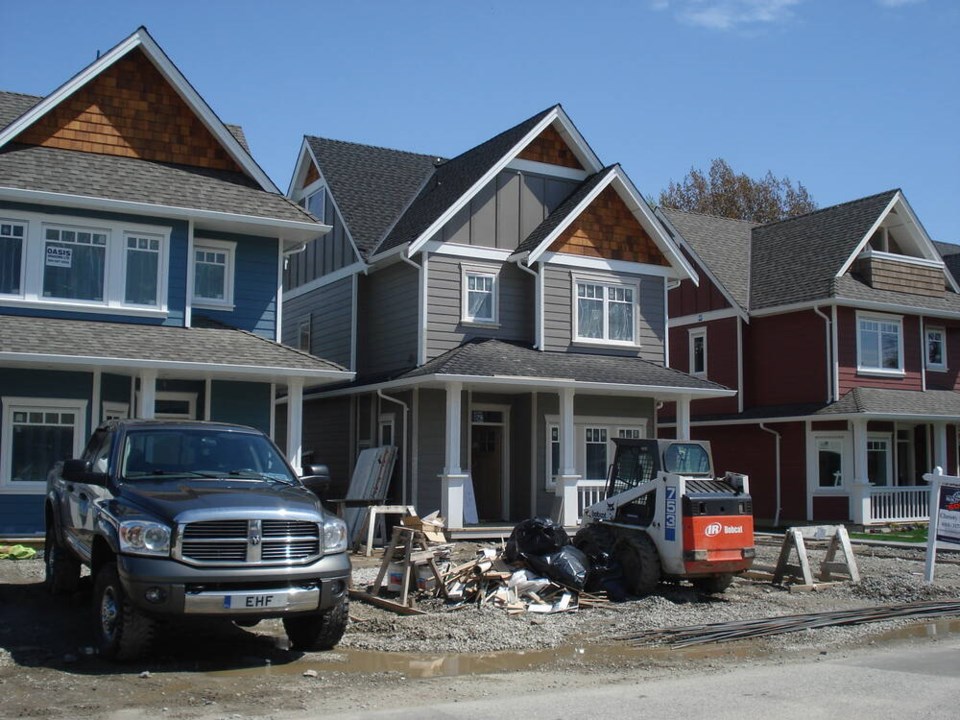Delta council at its last meeting of 2023 gave final consideration and approval of a zoning amendment to allow a property on Milsom Wynd to be subdivided into two lots, each to have a new house.
The dwellings for both would have 3,310-square-feet of above-ground floor area and in-ground basement of 1,841-square-feet for a total floor area of 5,151-square-feet. The secondary suites in the in-ground basements would be 810-square-feet.
By next summer, new Official Community Plan (OCP) amendments will likely result in even more housing units allowed on such lots, without having to go through a rezoning process.
The provincial government last year gave Delta a housing target of 3,607 units over the next five years.
The government also introduced a series of legislation intended to stimulate housing supply, following up on the Home for People plan.
The legislation requires, among other things, municipalities updating their zoning bylaws by June 30, 2024, to permit small-scale, multi-unit housing on all lots currently zoned for detached single-family or duplex use. Three-to-four units will be allowed on what was formerly single-family lots.
A recent report from Metro Vancouver staff to the Mayor’s Committee provided analysis and outlined several concerns from a regional perspective, including spreading development more broadly by upzoning single-detached neighbourhoods, where local area plans have already been completed contemplating greater density closer to transit and commercial nodes.
The report notes a blanket approach to density could result in a greater density of housing in parts of the region that are more car dependent. Spreading growth to outlying single-detached neighbourhoods cannot be considered strategic infill, the report notes.
Additional analysis of the capacity and growth trends will also be required to make a clearer determination on how pre-zoning to permit small-scale multi-family housing might impact utility planning. The short timeline required for local land use and zoning changes will be challenging to consider and adjust for any anticipated utility impacts.
“Metro Vancouver will be reviewing the provincial modelling and economic analysis and conducting additional analyses to develop a better understanding of how pre-zoning to permit Small-Scale Multi-Family Housing in areas currently zoned for single-detached dwellings will impact population distribution and growth. The Province’s materials indicate that the change is likely to lead to a substantial number of net new units, requiring significant infrastructure investment,” the report also notes.
Meanwhile, requiring OCPs to accommodate more residential growth than is currently required will necessitate new consideration for the location of amenities, emergency services, community facilities, schools and transportation.
The report adds that the legislation has not considered policies and targets of Metro 2050, the regional growth strategy.
The provincial government in December announced the release of its Small-Scale Multi-Unit Housing Provincial Policy Manual for municipalities, containing site standards to help local governments work with homebuilders to move forward with viable housing projects. Municipalities are required by legislation to consider the manual when developing local zoning bylaws and policies.




